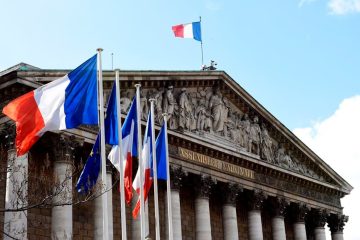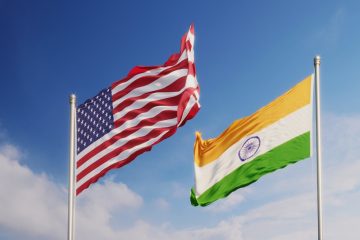U.S.-Funded Scientist Among Three Chinese Researchers Who Fell Ill Amid Early Covid-19 Outbreak

A prominent scientist who worked on coronavirus projects funded by the U.S. government is one of three Chinese researchers who became sick with an unspecified illness during the initial outbreak of Covid-19, according to current and former U.S. officials. The identity and role of the researchers is one piece of intelligence that has been cited by proponents of the judgment that the pandemic originated with a lab leak, though the nature of their illness hasn’t been conclusively established.
Ben Hu, a scientist at the Wuhan Institute of Virology who had done extensive laboratory research on how coronaviruses infect humans, was identified in U.S. intelligence reports as one of the researchers who became ill in November 2019 with symptoms that American officials said were consistent with either Covid-19 or a seasonal illness. None of the researchers died. More than three years after the pandemic began, and with almost seven million deaths around the world, the virus’s origins remain a subject of debate, with implications for U.S.-China relations, global biosafety and international research practices.
President Biden signed a bill in March that directed the federal government to declassify as much intelligence as possible about the origins of Covid-19 more than three years after the start of the global pandemic. The initial hypothesis that the virus arose naturally has been challenged as a host animal has never been confirmed. The scientific community is divided over the possibility that the virus emerged from a lab leak or was transmitted to humans from an infected animal, as is the U.S. intelligence community.
The Federal Bureau of Investigation has assessed with moderate confidence that a lab leak was the most likely origin of the virus and the Energy Department came to a similar conclusion with low confidence. Four other U.S. intelligence agencies assess with low confidence that the virus arose naturally, while the Central Intelligence Agency has been agnostic. Robert Kadlec, a former senior Health and Human Services Department official, said the three scientists “published on SARS-related coronavirus experiments done at inappropriately low biosafety settings that could have resulted in a laboratory infection.” Kadlec also conducted a Senate study that concluded a lab leak was the more likely cause of the Covid pandemic.
The U.S. intelligence community is planning to declassify more information regarding its search for Covid’s origins as soon as this week, under a law that Congress passed and President Biden signed in March. It couldn’t be determined if the declassified intelligence would include the names of the researchers, and representatives for the director of national intelligence declined to comment. The Wall Street Journal reported in 2021 that U.S. intelligence about the sick researchers was fueling the push for a fuller investigation into whether the virus might have escaped from a laboratory in Wuhan.
Neither the names of the scientists, nor their specific positions at the institute, nor the fact that the work one of them did was funded by the U.S. government was disclosed at the time. The current and former U.S. officials told the Journal the three who fell ill were Hu; Yu Ping, a Chinese scientist who wrote a 2019 thesis on SARS-related coronaviruses found in bats; and another scientist named Yan Zhu. Sen. Roger Marshall, (R., Kan.), said more scrutiny was needed over the U.S. administration of global research grants.
The researchers’ names were noted last week in an article in Public, which publishes on the Substack platform, and were independently confirmed by the Journal. Hu is noteworthy, current and former officials say, because of his central role in coronavirus research at the Wuhan Institute of Virology. Further, some of the projects he worked on were funded by U.S. government grants, according to documents acquired through the Freedom of Information Act by the White Coat Waste Project, a nonprofit that opposes taxpayer funded research on animals.
Hu and the other two researchers didn’t respond to emailed requests for comment. The Wuhan Institute of Virology said that it had nothing new to say about the researchers and declined to comment further. The Chinese Foreign Ministry didn’t respond to an emailed request for comment. Beijing has consistently rejected the notion that Covid first emerged in China, including a possible lab leak. Chinese Foreign Ministry Spokesman Wang Wenbin said in March that Beijing supported efforts to trace the origins of Covid. “The real obstacle thwarting global origins-tracing study is the U.S.’s political manipulation,” he said.
November 2019 is roughly when many epidemiologists and virologists think SARS-CoV-2, the virus behind the Covid-19 pandemic, first began circulating around Wuhan, a city in central China. China has said that the first confirmed case was a man who fell ill on Dec. 8, 2019. Hu is a leading researcher on coronaviruses who worked closely with Shi Zhengli, the leading expert on bat coronaviruses at the Wuhan Institute of Virology. Much of Hu’s research focused on modifying coronaviruses so they could bind to human cells.
The stated purpose of the research was to identify viruses that could lead to a pandemic and facilitate the development of a vaccine. Critics say that such research requires stringent precautions because such work can make the viruses in the lab more infections for humans. Yu Ping, who also worked for the institute along with Zhu, is an expert on the geographic spread of coronaviruses and wrote a thesis that was the first to describe a new family of SARS-like coronaviruses that are most closely related to SARS-CoV-2.
That thesis and published scientific articles by other Chinese scientists also indicate that much coronavirus research was done in Biosafety level-2 facilities, a lower standard than the Biosafety level-3 or Biosafety 4 laboratories that are normally used around the world, including in China, for the riskiest research. The Government Accountability Office noted in a report last week that some of the research at the Wuhan Institute was funded by the U.S. Agency for International Development and the National Institutes of Health. Between 2014 and 2019, about $1.4 million was disbursed for work at the institute by both agencies before such grants were suspended.
U.S. government documents obtained by the White Coat Waste Project show that some of this funding, which was administered by a global nonprofit group, EcoHealth Alliance, went to research efforts that listed Hu as an investigator. Among those projects was one funded by NIH on the risks of Bat Coronaviruses. Another was a USAID-supported project that looked at ways to detect infectious diseases in remote parts of the world, including viruses that might jump from animals to humans and cause a pandemic.
The White Coat Waste Project filed dozens of Freedom of Information Act requests and eventually sued in 2021 to obtain the documents. “Agency stonewalling and reporting loopholes made it incredibly challenging to follow the money from government agencies to the Wuhan lab, but the documents make it clear that U.S. taxpayer money funded some of Hu’s experiments,” said Anthony Bellotti, the founder and president of White Coat Waste Project.
A USAID representative said the funding for research at the Wuhan lab ended in 2019 and was part of the agency’s mission to identify and contain pandemic threats. The project provided about $815,000 to the Wuhan Institute of Virology and $39,000 to Wuhan University. NIH didn’t respond to requests for comment. Peter Daszak, president of EcoHealth Alliance, declined to comment.
Sen. Roger Marshall, (R., Kan.), a member of the Senate Health Committee, said that the episode pointed to the need for greater scrutiny of how U.S. research grants are determined. “Not only should we better monitor the scientists and types of research we support but we must reform the U.S. global research grant administration to ensure oversight, transparency, and accountability,” he said.










